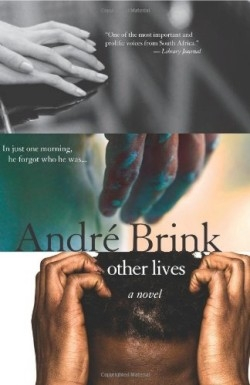Other Lives
In this triptych of a novel, three main characters—white men in the prime of their professional lives—appear in three separate yet related stories set in Cape Town, South Africa, in present times. Driven by their careers and loved by flawed but beautiful women, all are in the pursuit of passion and recognition and driven by a nameless hunger.
In the first story, forty-four-year-old artist David le Roux leaves his studio at the end of the day and finds himself coming home, not to his wife Lydia, but to a dark-skinned woman named Sarah and two children he has never seen before. In the second story, an architect named Steve looks in the mirror one morning at forty-two-year-old to find that he is no longer white, but black. And in the final story, fifty-two-year-old concert pianist Derek Hugo pursues a famous soprano whose attainment may mean a Faustian bargain of sorts.
In these three stories, two of the characters become victims in an armed robbery. As Steve laments, “These are not down-and-outs driven by need. This is the New South Africa. Thugs smelling of expensive aftershave.” Throughout the novel, a sense of unreality prevails, and the characters’ carefully planned-out lives are stripped down until the cost to each is revealed. For David, who suddenly recognizes “I have never done an uncalculated, unpremeditated thing in my life,” it was in having given up the black woman he loved but did not marry; for Steve it lies in the hubris and deception that allowed his career to rise, and for Derek, it is his unrequited obsession with a haunted and mysterious woman.
Underlying all is the post-apartheid political landscape in which human values have been degraded. And, as the characters attempt to navigate Escher’s surreal staircase, or cling to a precipice on Brueghel’s Tower of Babel, they come to realize that the language they have always used no longer carries the same meaning. Each enters a portal—a door, a mirror, a dark sexual fantasy— from which there may be no escape.
André Brink is one of South Africa’s most distinguished writers, and is the author of A Dry White Season, as well as several other novels, two of which have been short-listed for the Booker Prize. He has written extensively on themes of colonization and violence.
Reviewed by
Sarah Christensen
Disclosure: This article is not an endorsement, but a review. The publisher of this book provided free copies of the book to have their book reviewed by a professional reviewer. No fee was paid by the publisher for this review. Foreword Reviews only recommends books that we love. Foreword Magazine, Inc. is disclosing this in accordance with the Federal Trade Commission’s 16 CFR, Part 255.

